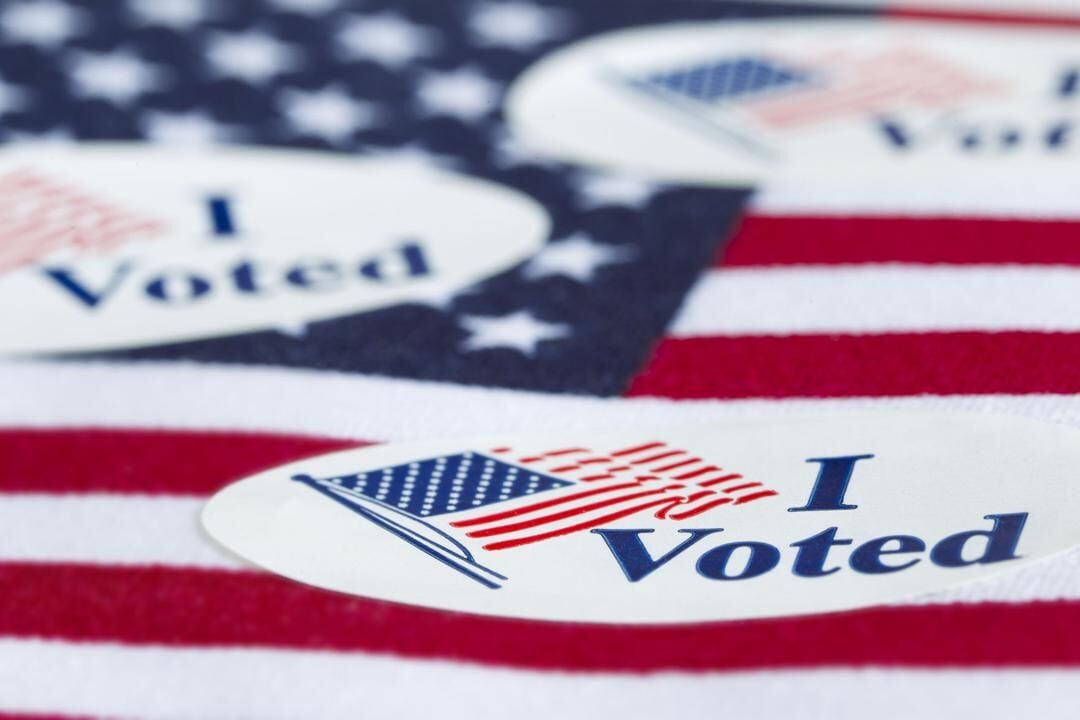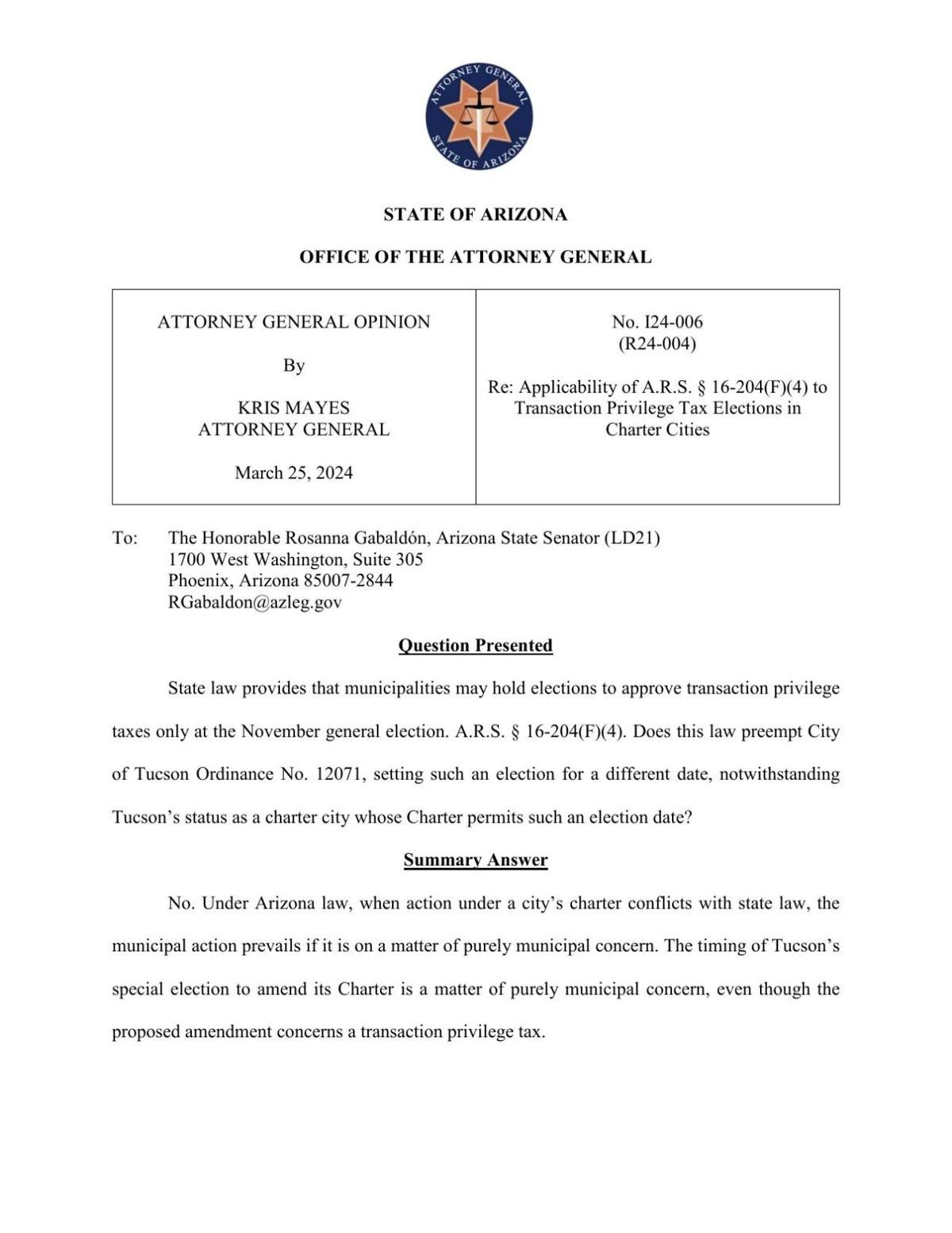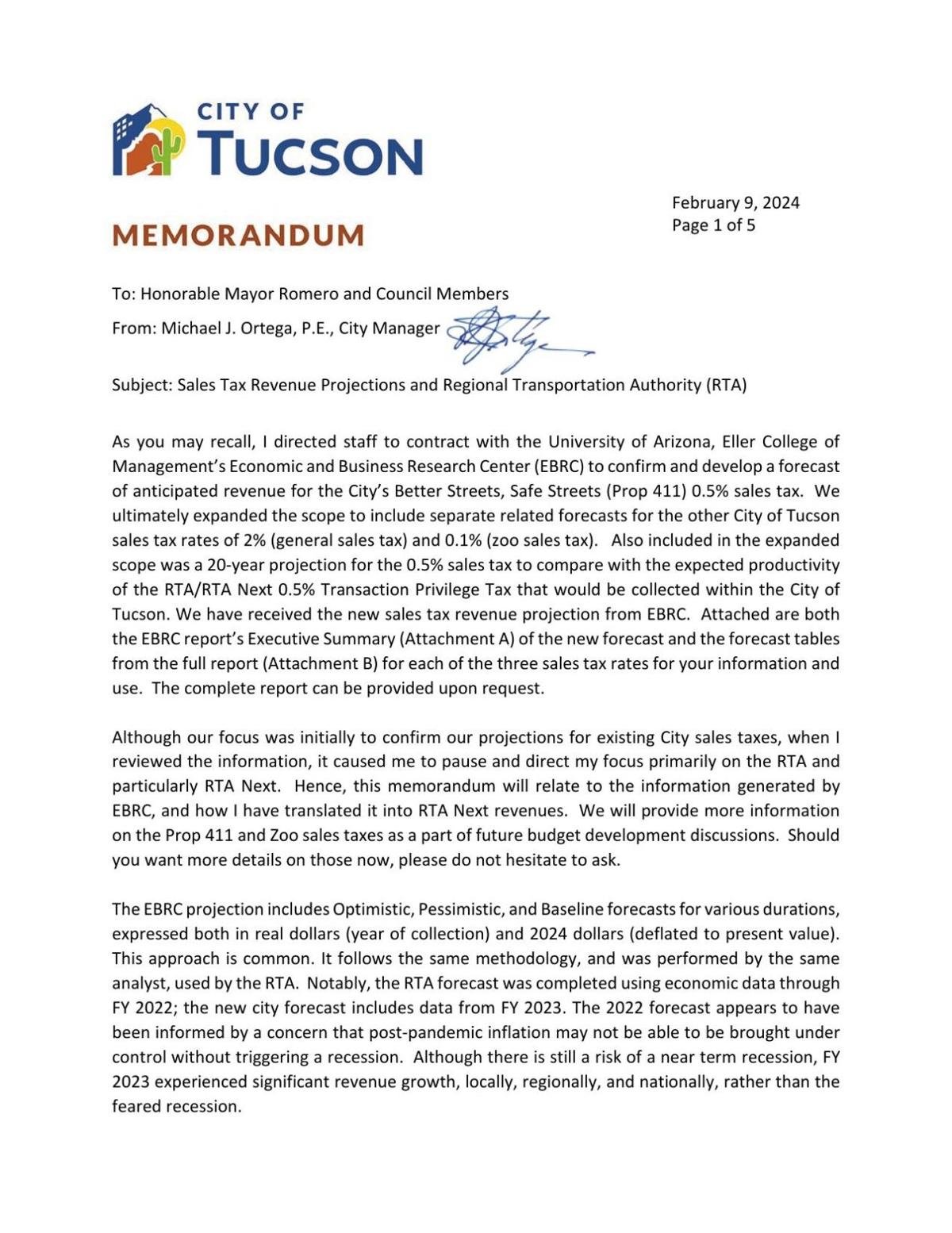Tucson officials can proceed with a special election this summer for a new sales tax, the Arizona Attorney General says.
At their Feb. 6 meeting, Tucson’s city council unanimously approved a special election for a proposed sales tax, to be held on Aug. 6.
That date was moved up to July 30, in accordance with Arizona lawmakers moving the state primary election date up a week.
The tax would be used “to fund community investments to promote the quality of life” for Tucsonans, Tucson Mayor Regina Romero said during the February meeting, but specifics on such “community investments” have not been provided.
Romero was not made available to the Star this week to further explain what this tax could fund.
But Andy Squire, the city’s spokesman, said the council is expected to discuss what the tax will go towards during an upcoming city council meeting.
“Now that the question of the timing of an election has been answered, it opens the door for the Mayor and Council to decide the next steps,” Squire told the Star in an email. “It is our expectation that the Mayor and Council will add this as a topic of discussion at an upcoming Mayor and Council meeting.”
Setting an election date needed to happen at that time, said city attorney Mike Rankin during the Feb. 6 meeting, because of a legal issue that had to be resolved “relating to the timing” of local elections.
“The Arizona legislature over the years amended the state laws to try and dictate the timing of certain types of local elections,” Rankin told the council. “So, by acting tonight and calling the election in August, it brings that legal issue to a head, and we can attend attempt to resolve that legal issue now.”
The state law in-question defines certain dates and timeframes within an election year that a vote can be held.
“Notwithstanding any other law,” the statute says, an election for such a tax must be held on the first Tuesday after the first Monday in November in even-numbered years. So, according to state law, Tucson’s special election date would have come about three months early.
According to Arizona Attorney General Kris Mayes, however, “when action under a city’s charter conflicts with state law, the municipal action prevails if it is on a matter of purely municipal concern,” she said in an opinion posted Monday to the Attorney General’s website.
Because Tucson’s special election would be amending its own charter, the city’s special election is “a matter of purely municipal concern,” Mayes said.
“In short, Arizona courts resolve conflicts between state and municipal law by looking to what is regulated, and whose concern it is,” Mayes wrote. “When a charter provision or action under the charter raises an issue of purely municipal concern, the charter governs. When, by contrast, the matter is of statewide concern, state law wins out.”
Arizona Sen. Rosanna Gabaldon, D-Green Valley, who requested an opinion from Mayes on Feb. 23, asked for an expedited response as “time is of the absolute essence.”
Following the unanimously approved election date, Tucson city manager Michael Ortega released a memo that laid out the case for the city to skip its role in the upcoming RTA Next plan.
Ortega had directed his staff to contract with the University of Arizona’s Eller College of Management’s Economic and Business Research Center (EBRC), to forecast the “anticipated revenue” of, among others, a half-cent sales tax like the one up for a vote in August “to compare with the expected productivity of the RTA/RTA Next” sales tax, he said in his memo.
The projected revenue from Tucson in the most pessimistic forecast, $1.65 billion over 20 years, represents over 70% of the RTA’s $2.34 billion total for the entire region, Ortega wrote. By participating in RTA Next, Ortega has said, “the City would basically give up approximately $640M of revenue over the next 20 years or approximately $32M annually.”
At a subsequent RTA meeting on Feb. 22, RTA Board Chair Ted Maxwell said the projections Ortega used for his memo were about 20 months old.
Farhad Moghimi, executive director for the RTA, said at the meeting that updated projections were expected by the end of March.







